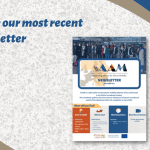Student Mobility: the role of the accompanying teacher

In each mobility, students are always accompanied by a teacher or professional from their center of origin to offer them support throughout the whole experience. We spoke with Aboubakary from the Center Père Michelle in Bamako (Mali) to learn about his experience as an accompanying teacher for a group of students from his center in Portugal.
What were your expectations before starting the mobility? Have they been met?
Our expectations were among others:
- Carry out practical trainings in horticultural agricultural farms in order to participate in production, harvesting and product packaging activities.
- Carry out practical trainings in agricultural product processing companies
- Carry out practical trainings in dairy cow breeding companies
- Visit a fish farm
- Understand the functioning of the cooperative that manages the agricultural products processing plant in Montemore-o-velho
- Understand the operating mechanism of the association of agricultural producers in charge of managing the developed agricultural space
As for the achievement of these objectives above, they have been achieved to the extent desired.
As an accompanying teacher, your responsibility was to accompany the students at all times during their experience in Europe. Did they have any kind of fear?
Not fear but rather challenges, in terms of achieving objectives, meaning for example satisfying the desire of students to do practical trainings.
How were the first days? Did the group find it difficult to adapt to the new environment or did they find it easy?
The first days the group did not have any particular difficulties except the change of weather but that went away very fast.
How was your daily life with the students in the center?
The activities mainly took place in the company. Every morning we gathered at the school, which was less than a km from our residence, where the school bus took us to the various training locations according to the program agreed with the mobility team of our hosts throughout our stay.

What activities outside the center did you do? Where you able to know Portugal in depth?
Outside the school, the activities were essentially: walks in the village, table football, reporting the day after dinner, setting up the youth cooperative project, talks, etc.
What has this mobility meant for you on a personal level?
This mobility was for me a very great experience from a personal and collective point of view because it allowed me to understand the fluidity of the collaboration between companies and the host school, to understand the creation of the value chain in all the sub-sectors of agriculture, agricultural mechanization, the practice of agricultural activities by professionals in the field.
And on a professional level? Have you returned to your center with new knowledge?
Of course on the professional level, I came back with lessons learned from a management and technical point of view. The involvement in the management of the agricultural cooperative, the development of the agricultural areas of the school, the involvement of companies in the activities of the school and vice versa, the level of equipment of the school. Also, the participation of the municipality in the management of the school.


How was your return to Mali? In your opinion, what impact will this mobility have on the students who participated in it?
This mobility has already had an impact on students:
- Strengthen their technical capacity through internships in companies
- Increase the desire in students to start the course of training and to further motivate those who had already taken part in it.
- Set up the project to create an agricultural cooperative for young agricultural entrepreneurs
- Encourage students to create a cooperative of young agricultural entrepreneurs in order to promote agricultural entrepreneurship.








